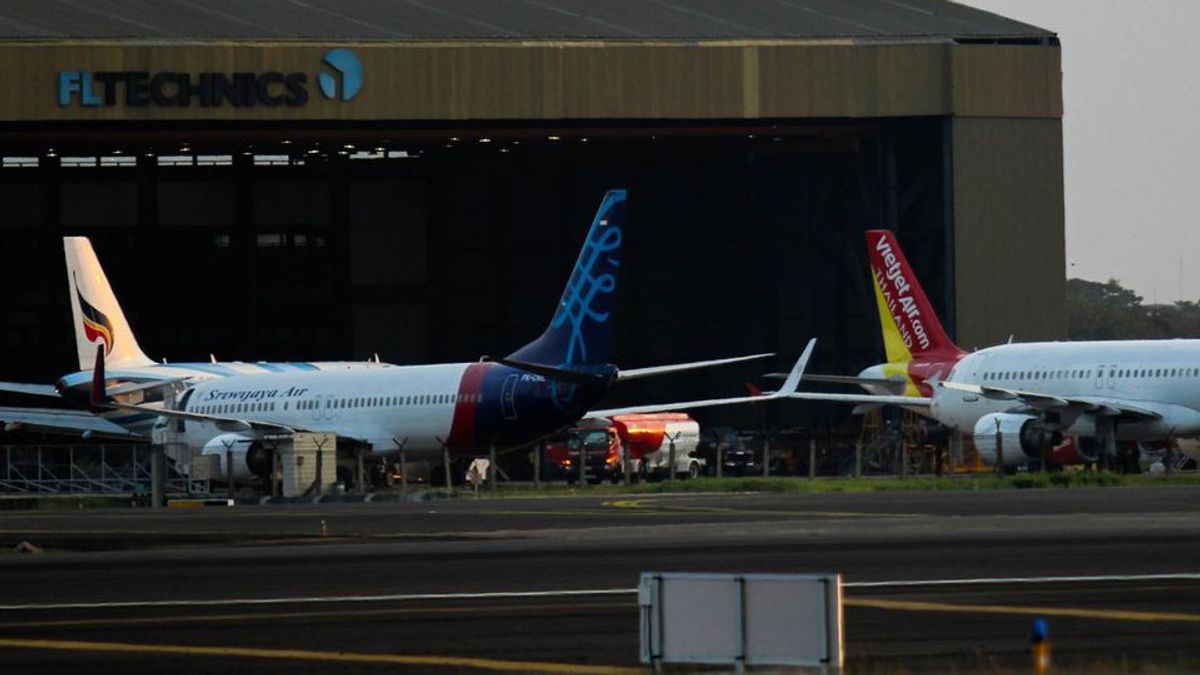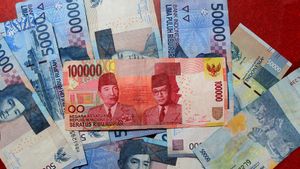JAKARTA - The world of aviation is one of the sectors that was badly affected during the pre-COVID-19 period. However, with the new life pattern rules, the aviation sector can come back to life. However, with a note must prioritize health protocols.
Chairman of the Association of Indonesian Aviation Medicine Specialists (PERDOSPI), dr. Wawan Mulyawan noted things that must be considered when the world of aviation is reopened. One of them is about rules or regulations that must be firm and clear.
So, later there will be no confusion that occurs in the community as passengers or airline managers. Moreover, the spread of COVID-19 can be minimized.
"For this reason, scientific studies regarding the correct steps in implementing the new normal in various aspects of life, including in the world of aviation, must be put forward for the benefit of the community, without rushing to apply the rules of thumb," said Wawan in his statement, Monday, June 8. .
Referring to the rules or policies that have been issued by the government so far, such as Presidential Regulation (PP) number 21 of 2020 concerning PSBB, Permenkes number 9 of 2020 concerning PSBB Guidelines, and Permenhub number 18 of 2020 concerning Control of Transportation in the Context of Preventing the Spread of COVID-19 , should be able to become a guideline for airport managers and airlines to prevent transmission or spread.
This includes implementing comprehensive steps in accordance with the Circular (SE) of the Director General of Civil Aviation number 10 of 2020 concerning Prevention of the Spread of Covid-19 in Aviation.
"Prevention of the transmission of the Covid-19 virus at airports and aircraft cabins must be the main program of all aviation authorities, while still considering the logical basis, effectiveness and ease of implementation in the field," said Wawan.
In fact, if you look at the recommendations from the International Civil Aviation Organization (ICAO), the 'Collaborative Arrangement for Prevention and Management of Public Health Events in Civil Aviatiation' rules has been issued while still referring to the World Health Organization (WHO).
This is related to maintaining the health of the community as users of air transport by applying the principles of clean crew, clean aircraft, clean airport facilities and transporting, clean passengers. So it is hoped that a COVID-19 free status will be achieved in the aviation sector.
However, not only airport and airline managers, the same rules must also be socialized to the community. Because, this is the method or key to the success of preventing and spreading COVID-19. So, when people use flight services, they know what to do and what not to do in the new normal pattern.
However, if all the rules and recommendations are not carried out properly, what will happen is the spread of COVID-19 will become more massive. In fact, it is possible that air transportation will be closed again during the pre-COVID-19 period and lead to airline company bankruptcy.
In fact, said Wawan, the aviation industry is a strategic investment and should be prioritized in order to survive. Moreover, the aviation industry absorbs a lot of workforce.
"The world of Indonesian aviation as one of the service industries with super expensive and strategic investments, has been the business environment that experienced the deepest contraction at the earliest when the Covid-19 pandemic came and therefore it must be prioritized to be saved from permanent collapse," said Wawan.
RecommendationWith these notes, said Wawan, his party provided recommendations that could be applied to the world of aviation during the application of new life patterns during the early days of COVID-19.
First, the central government must be the main controller in monitoring passenger health. Thus, there is no difference between central and regional policies.
"There should be no different interpretations in the field due to the local government's policies regarding health screening of prospective passengers on departure or passengers at arrival at the airport," said Wawan.
However, airports that are considered not yet capable of providing health facilities can use the method of handing over to service users or the public. By doing this method is considered more effective and not costly.
Second, recommend all aviation authorities to maximize public awareness and participation in implementing health protocols. This can be done by disseminating it through health experts.
Third, using an online-based system on the side of checking health documents or anything else. So, it can overcome the buildup and can put forward health protocols such as maintaining body distance or physical distancing.
Furthermore, related to spatial planning at the airport, which must apply or prioritize the concept of maintaining body distance and providing hand sanitizers at several points. Then, recommendations in terms of enforcement of health protocols at airports that must be enforced. So, the potential for transmission can be suppressed.
"Airport security, other officers under the authority of the airport and the Port Health Office (KKP) and cabin crew, should be given the authority to conduct warnings and take action in accordance with the prevailing regulations (health protocol), including postponement of departure," said Wawan.
The sixth recommendation, continued Wawan, was that his party did not agree with the limitation of 50 percent of aircraft capacity. Because, by referring to the new lifestyle, prevention of spread can be done in other ways, for example, using masks and other protective equipment.
"Another way to reduce the risk of transmission is to increase the level of PPE protection, such as the use of 3-ply surgical masks, use of a faceshield and restriction of movement in the cabin," said Wawan.
Meanwhile, for cabin attendants, the PPE used is added with gloves and face shields. However, it must still prioritize the aspects of flight safety.
Wawan continued, the cost of procuring PPE for passengers could be borne directly by ticket prices. Finally, in the new normal pattern, the length of the check-in and boarding processes is considered normal by reason of the passenger screening process.
"It is normal for the check-in and boarding process to take longer, but at least the maximum time that can be tolerated is the check-in limit of 2 hours before the scheduled departure of domestic aircraft and 3 hours before the departure of international aircraft. Meanwhile, for the arrival of passengers the maximum length of time is stuck at the airport due to the process. screening is 2 hours, "said Wawan.
The English, Chinese, Japanese, Arabic, and French versions are automatically generated by the AI. So there may still be inaccuracies in translating, please always see Indonesian as our main language. (system supported by DigitalSiber.id)








